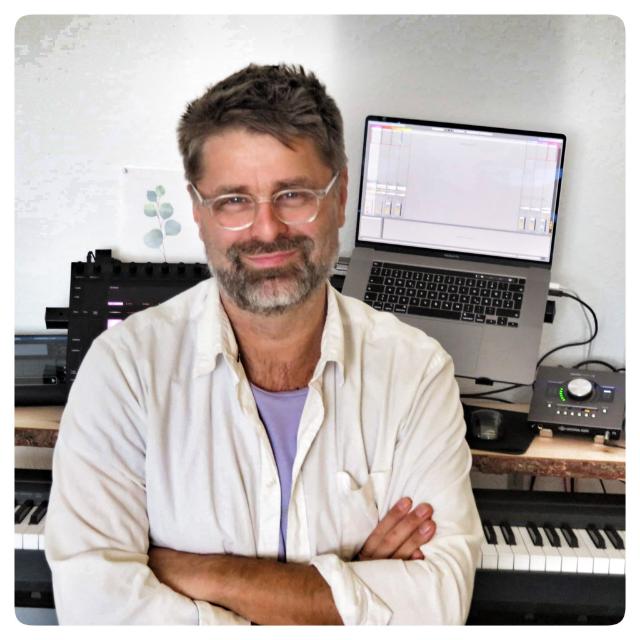
When he had left his country Bosnia in in the 90’s, Robert Soko started to develop his interest in the local music of the Balkan. Before, he had always ignored it . When he finally took to it, It became his passion and he has made it a worldwide success. The BalkanBeats were hot and Robert definitely is one of the diamonds that color the multicultural scene in Berlin!
DJ Robert Soko started the first parties in Berlin in 1993. Mixing music from the Balkans properly, he coined the term BalkanBeats and ever since that was the defining label. Recognizable because gypsy brass and folk melodies are reinterpreted, given electronic beats and blended with Western styles such as ska and rock. The Balkanbeats caught on in other cities around the world – of course where Balkan immigrants live, but also everywhere that young, urban, adventurous party crowds are searching their kicks on the dancefloor, too.
Robert Soko grew up in Zenica, central Bosnia, listening to western music: rock‘n’roll, punk and ska. In 1990, he left the exploding region for Berlin. He took a job as a taxi driver and started hanging out at the old Arcanoa, a legendary former punk bar in Berlin’s Kreuzberg district, frequented by notorious clientele of the neighbourhood but especially by fellow ex-pats. The Arcanoa became their new home! Soko put on his first parties there, playing the rock and pop soundtrack of his Yugo youth for 50 German marks for evening and beer for free. He celebrated the socialist holidays: Tito’s birthday, Day of Women, International Worker’s Day. The parties were dazzling with nostalgia and irony alike – an apt sign of the strong feelings the people of the exploding Socialist Federal Republic of Yugoslavia had about the tragedy occurring in the region.
Then, after decades of listening to and playing primarily western-derived music, Robert Soko found himself returning to his ethnic Balkan music roots, the roots he originally had rejected flat out as a youth in Bosnia. Goran Bregovic’s soundtracks to the films of Emir Kusturica and Fanfare Ciocărlia’s early records ignited a spark that not only caught on with the people of the Balkans, but with Western communities, too. In almost no time, Soko made these variations of the ever-growing ‘ethno-beat’ movement the flavour of the day on the international dancefloors.
Here we move, here we groove!
An amazing musical road trip, Dj Robert Soko, known for his Balkan Beats, searches for a new ‘sound of Europe’ with the help of refugee musicians. After the film, we’ll discuss his work together with director Sergej Kreso and Soko himself. When Robert Soko fled the war in Yugoslavia as a teenager, he used Western music and rousing Balkan rhythms to mix cultures, and became a famous Balkan Beats DJ in Berlin and the European club scene. In the documentary Here We Move Here We Groove, Soko goes searching for people like himself: refugees who have left home behind, but still carry their unique sound and culture within them. With them, he starts making music.
Director Sergej Kreso, a refugee himself, follows the passionate journey of Robert Soko. This evening, we will discuss the film with Kreso and Soko; the encounters they have had, the musical boundaries that they have shattered, and the way the identity of Europe has changed.